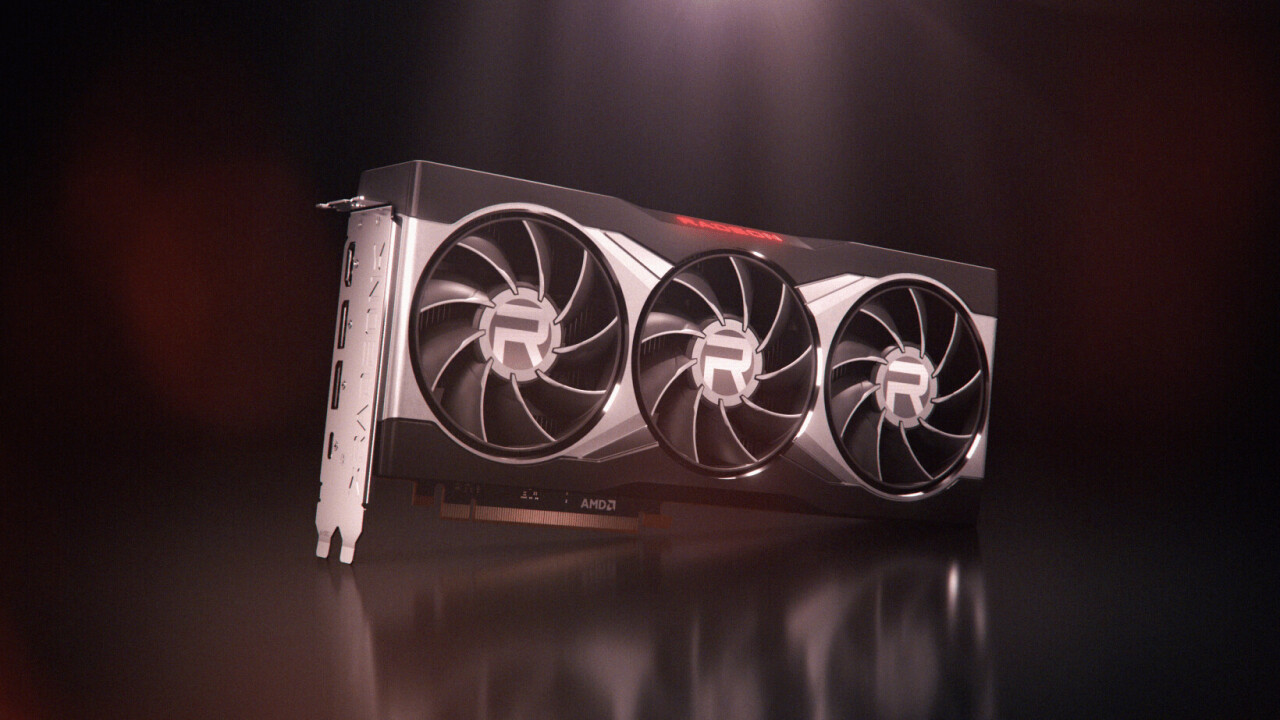
Man, AMD is on a roll. It was just a few years ago that the company seemed destined to fade into relative obscurity in fields dominated by Intel and Nvidia. Now in 2020, the company is managing to trade blows with its heavyweight competitors in two different markets. Case in point: the company today revealed the Radeon RX 6000 series, specced and priced to offer a real challenge to Nvidia’s RTX 3000 cards — and potentially save you some money.
That’s no small feat, considering the fact that AMD was behind the previous generation and that Nvidia’s new cards are one of its biggest generational leaps ever. Yet if AMD’s performance metrics are to be believed, the RX 6800 ($579), 6800 XT($649), and 6900 XT($999) offer real competition to the RTX 3070 ($500), 3080($700), and 3090($1,500), respectively. The RX 6900 XT in particular looks like a fantastic deal.
AMD claims its new RDNA 2 technology offersup to twice the performance of the prior generation while drawing roughly the same amount of power (and less than the Nvidia equivalents). This is despite the fact that the company is using the same 7-nanometer transistor size as in its previous cards.
One source of the improvement is something called “Infinity Cache,” essentially 128MB of on-die cache to reduce latency in GPU processing. The company isn’t providing many other specifics on how it’s achieving these gains, but hey, we’ll take ’em.

Ray-tracing has been a huge part of Nvidia’s graphics push the last few years, so the new cards support accelerated DirectX raytracing on each compute unit for up to ten times faster performance compared to software-based raytracing. The cards also support AMD’s FidelityFX, an open-source toolkit for developers to easily add high-quality lighting effects.
Variable Rate Shading, for instance, allows developers to spend fewer processing resources on areas of the image that aren’t as important, while a denoiser should make for cleaner ray-traced lighting. It also has something called ‘Super Resolution,’ which appears to be the company’s analog for Nvidia’s DLSS upscaling technology.
AMD also has a subtler advantage: its technology is used in the PS5 and Xbox Series. That should give the company a leg-up on cross-platform titles.
Here are some slides AMD provided comparing its cards against Nvidia’s. Its likely AMD chose games where its cards will be more performant, but its impressive to see the cards go toe-to-toe nonetheless. Here’s the RX 6800 against the RTX 2080 Ti, which is roughly equivalent to the RTX 3070:

Here’s how the RX 6800 XT compares to the RTX 3080. In this chart, AMD also shows off something called ‘smart access memory,’ a proprietary technology to allow computers running the latest Ryzen processors to directly access the GPUs memory:

And lastly, here’s the RX 6900 compared to the RTX 3090:

It’s the first time in a long time that team red has had flagship graphics cards that appear to be fully on par with Nvidia’s — while apparently drawing less power too.
The proof is in the pudding though, so we’ll learn more once the cards can be benchmarked by independent users and publications. The RX 6800 and 6800 XT will be available starting November 18, while the 6900 XT arrives December 8.
If you’ve got 25 minutes to kill, you can watch AMD’s full announcement below:
Get the TNW newsletter
Get the most important tech news in your inbox each week.




